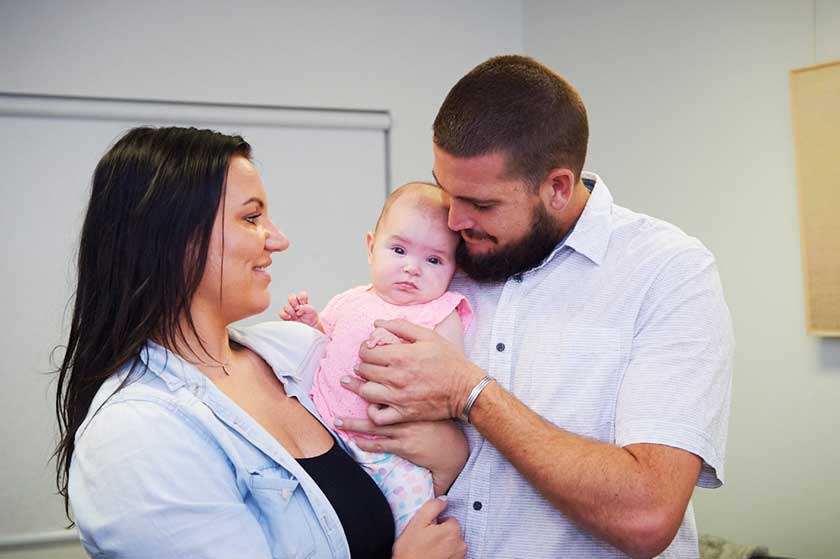Director Community Mental Health Services at St John of God Social Outreach Anna-Marie Thompson says many men struggle to speak up when they’re feeling overwhelmed.
“Physical health issues, like a broken arm or a cut needing stitches, is easily seen and acknowledged, however emotional issues are often invisible.
“It’s generally true that men often operate with more of a desire for issues to be ‘fixed’, however emotional issues often take time to work through with professional assistance from a counsellor or therapist. This can make it harder for men to seek support,” she says.
Many men often feel pressure to be ‘strong’ at all times. This can be especially true when transitioning to fatherhood as both partners go through a major life adjustment at the same time.
If someone recognises that they might be experiencing signs of postnatal anxiety and/or depression , the best thing to do is talk to someone about it.
“Our partners are often the people closest to us and it can be helpful to talk to them if we find ourselves feeling overwhelmed, or not behaving as we usually would,” Anna says.
“Talking to a friend can also be helpful, particularly if that friend is also a father themselves, as they will more likely be able to understand the challenges you’re facing.”
It’s also important to visit a GP who will be able to offer additional support and a referral to specialist community services where needed.
Healthy Men, Healthy Minds photo competition
During Men’s Health Week, you can win a DJI Mini SE Drone by sharing your photo showing a special moment between a child and a significant man in their life through our Healthy Men, Healthy Minds photo competition.

Mental health
Perinatal mental health
Community services
Up to one in 10 new dads will experience symptoms of postnatal anxiety or depression following the birth of their baby. But men are often less likely to seek mental health support, due to stigma around asking for help.






